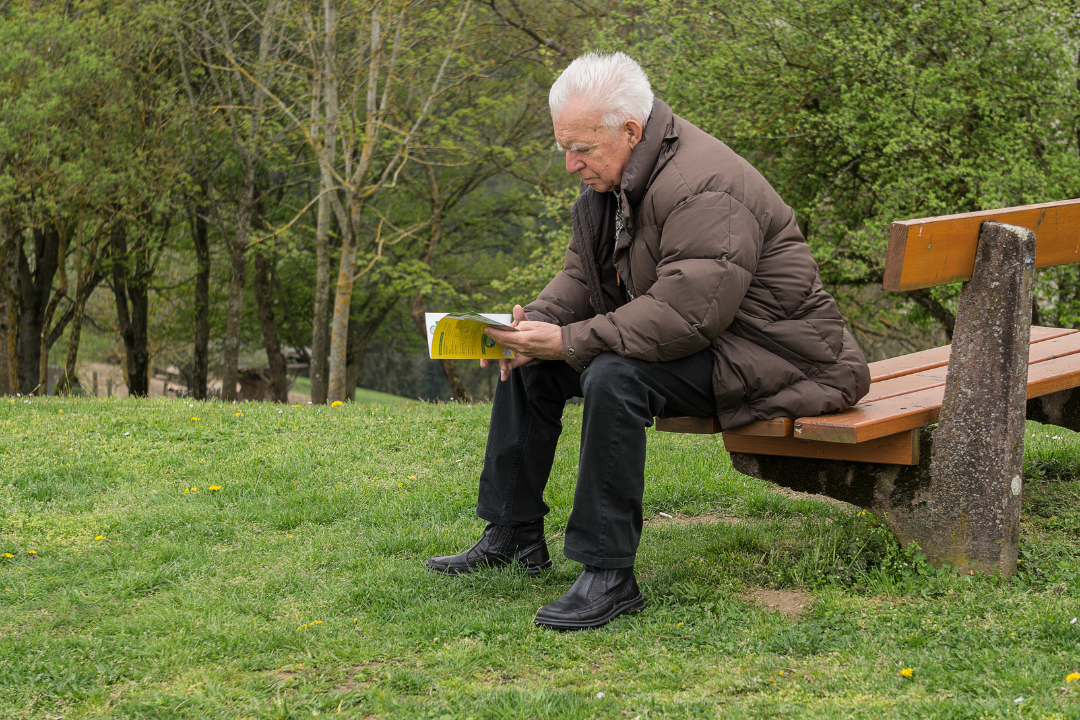Signs It’s Time to Consider Hospice for a Loved One
Supporting your loved one with comfort, dignity, and peace.
When someone we love is seriously ill, the desire to fight for more time is natural. Families often go to great lengths: new treatments, second opinions, hospital stays, and holding onto hope while navigating exhaustion, uncertainty, and pain. But sometimes, the kindest and most courageous decision we can make is to shift the focus from adding days to making each day as meaningful and comfortable as possible.
That’s where hospice care comes in, not as a sign of giving up, but as a powerful expression of love and compassion.
At Mosaic Healthcare, we walk alongside families during some of life’s most delicate moments. If you’re wondering whether it might be time to consider hospice, this guide is for you.
What Is Hospice Care?
Hospice care is specialized support for individuals with a terminal illness who are no longer seeking curative treatment. It focuses on comfort, dignity, and quality of life, often in the place your loved one calls home — surrounded by peace, love, and familiar faces.
Hospice includes:
- Pain and symptom management
- Emotional, spiritual, and psychological support
- Regular visits from a nurse and hospice aides
- Guidance for caregivers and family members
- 24/7 on-call clinical support
- Respite care for caregiver relief
- Bereavement support after a loved one passes
Hospice does not prolong or hasten death — it honors the natural process with grace, helping individuals live fully in the time they have left.

Why Families Wait to Call Hospice
Many families wait too long to seek hospice care because of common misunderstandings:
- “Hospice means we’re giving up.”
- “My loved one isn’t dying tomorrow — it’s too soon.”
- “We still want to try treatments.”
- “They’re still eating and talking — we’re not there yet.”
But hospice is not just for the final days. In fact, the earlier hospice begins, the more support your loved one and your family can receive. It’s about adding comfort, not countdowns.
10 Signs It May Be Time to Consider Hospice
Here are some of the most common indicators that hospice might be the next best step for your loved one:
1. Frequent hospitalizations or ER visits
If your loved one has been in and out of the hospital multiple times in recent months for the same condition, and treatment no longer seems to improve their overall health, hospice may help reduce stress and suffering.
2. Declining ability to perform daily tasks
If walking, bathing, eating, or dressing have become difficult without assistance — and these changes are due to a terminal or progressive illness — hospice can step in with home health aides and supportive care.
3. Uncontrolled or worsening pain and symptoms
Is your loved one experiencing shortness of breath, fatigue, confusion, nausea, or agitation that medications no longer fully relieve? Hospice has specialized expertise in managing complex symptoms gently and effectively.
4. Unintentional weight loss and loss of appetite
A noticeable decline in appetite or significant weight loss can be signs that the body is naturally beginning to slow down. Hospice focuses on comfort rather than forcing nutrition, honoring the body’s natural process with care.
5. Cognitive or functional decline
For those with Alzheimer’s, Parkinson’s, or other neurodegenerative diseases, signs like confusion, difficulty speaking, swallowing issues, or unresponsiveness may indicate that hospice support is needed.
6. A terminal diagnosis with a prognosis of six months or less
If a physician estimates that life expectancy is six months or less — based on disease progression — your loved one may be eligible for hospice under Medicare guidelines. Even if they live longer, they can continue receiving hospice as long as needed.
7. The patient (or family) chooses comfort over curative treatment
When continuing aggressive treatment no longer aligns with the patient’s goals, and the focus shifts toward comfort, hospice is often the best support system available. It helps families say “yes” to peace and presence.
8. Recurrent infections or frequent falls
Recurring infections like UTIs, pneumonia, or sepsis — especially if they require antibiotics or hospitalizations — are often signs of a declining immune system. Likewise, frequent falls can indicate advanced illness.
9. Withdrawal from life or relationships
Some patients begin to sleep more, talk less, or withdraw from activities they once enjoyed. These changes are common in the end stages of illness and are not signs of giving up, but rather a natural part of life winding down.

10. You, as a caregiver, feel emotionally and physically exhausted
Sometimes the clearest sign comes from you. If caregiving has become overwhelming, emotionally painful, or physically exhausting, hospice can wrap around you and your loved one with support, resources, and relief.
What Hospice Adds to the Journey
Many families who were hesitant to call hospice later say, “We wish we’d done this sooner.”
That’s because hospice:
- Helps manage pain without overmedicating
- Offers dignity in daily routines
- Gives caregivers a break and expert guidance
- Provides emotional and spiritual support for everyone involved
- Helps patients find peace in their final chapter
It’s not about giving up hope — it’s about redefining hope. Hope for comfort. Hope for togetherness. Hope for love-filled moments that matter.

What Happens When You Call Mosaic Healthcare
When you reach out to Mosaic Healthcare, you’re not making a commitment. You’re simply starting a conversation — with a compassionate team that will listen, assess your situation, and offer guidance without pressure.
Our promise to you:
- We’ll explain what hospice is (and isn’t)
- We’ll review eligibility and benefits — including full Medicare coverage
- We’ll walk you through what to expect, with warmth and honesty
- We’ll meet your loved one wherever they call home
- We’ll stay by your side every step of the way
Final Thoughts: It’s Not About Time Left — It’s About Time Well-Spent
It’s never easy to accept that a loved one may be nearing the end of life. But choosing hospice isn’t about giving up — it’s about choosing presence over pressure, comfort over chaos, and meaning over medicalization.
If your heart is heavy, unsure, or simply searching for clarity, reach out. You don’t have to walk this path alone. At Mosaic Healthcare, we’re here to carry some of the weight and bring peace to your loved one’s final journey — and yours.
Call us today
Or visit our website to learn more about hospice care and how we can support your family. Let’s talk about what truly matters — love, comfort, and dignity.


Reading this evokes the quiet presence of a sunlit forest, where each word illuminates nuance and texture, inviting the mind to wander thoughtfully and appreciate the harmony of ideas and feeling woven throughout.